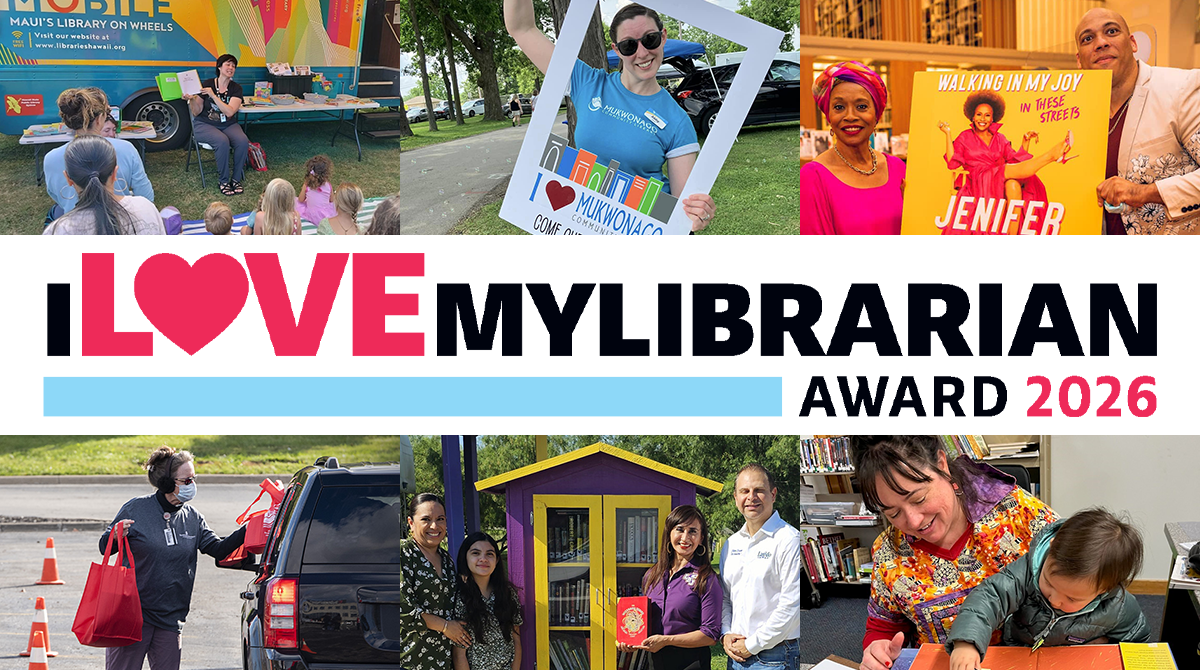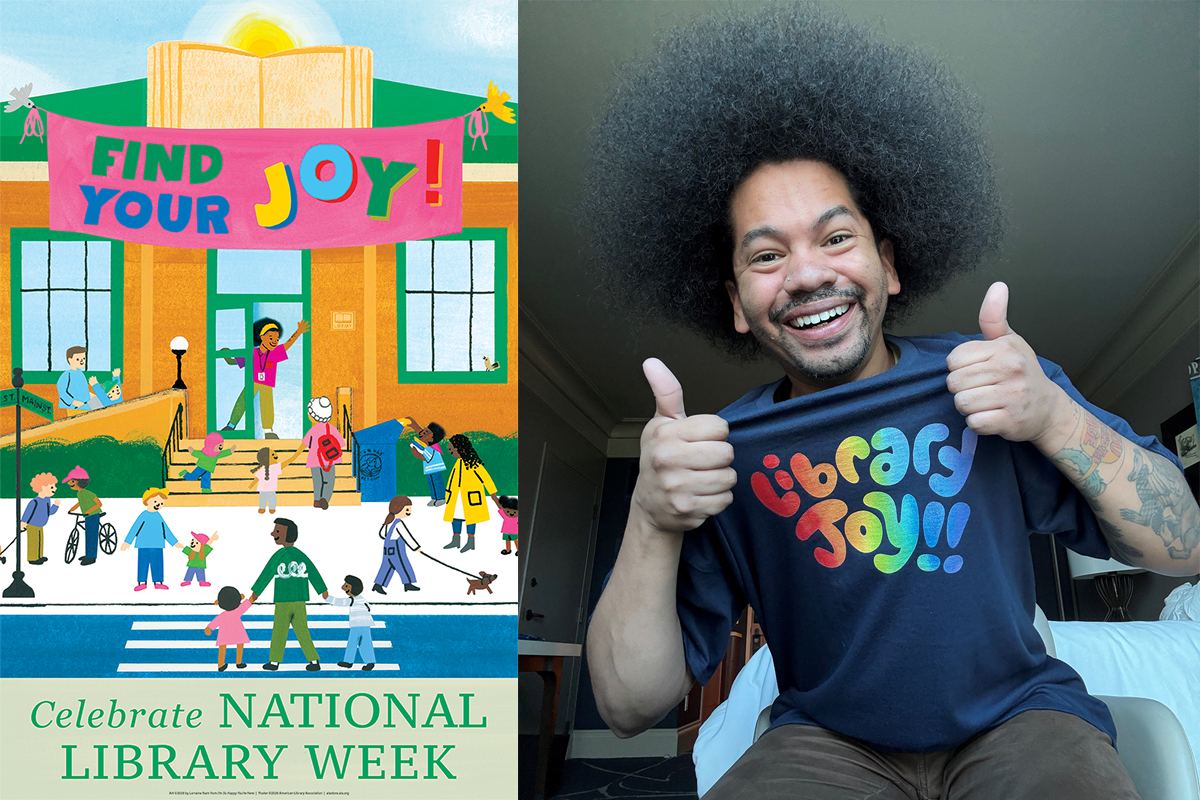Libraries and schools across the country are experiencing unprecedented levels of attempts to ban or remove books from their shelves. I Love Libraries will continue to raise awareness by highlighting attempts to censor library materials, as well as efforts by librarians, parents, students, and concerned citizens to push back against them. This report includes news from Utah, California, Texas, and a victory in the fight to get books returned to schools on U.S. military bases.
Become a Supporter
Utah bans a 19th book from all public schools
Jay Asher’s “Thirteen Reasons Why” has been banned from all public schools in Utah, reports the Salt Lake Tribune.
The book joins a growing list of titles that have been targeted in the state recently in accordance with a new law that went into effect in July 2024. The law requires that a book be removed from all public schools in the state if at least three school districts (or at least two school districts and five charter schools) determine it amounts to “objective sensitive material” — pornographic or otherwise indecent content, as defined by Utah code.
The young adult novel was officially banned October 23 after Nebo, Tooele County, and Washington County school districts removed the title. The New York Times bestseller-turned-Netflix show follows a boy who returns home from school one day to find a mysterious package addressed to him. Inside, he finds several cassette tapes recorded by a classmate who died by suicide two weeks earlier. On the tapes, the girl explains the 13 reasons why she committed suicide and the people she believed contributed to her decision.
Asher has defended the book vigorously against its banning.
“The book is essentially 13 stories from [the character] Hannah Baker’s life, and most people can relate to at least some of the emotions or situations she describes,” Asher said in a 2014 interview with School Library Journal. “And what she talks about are things that are difficult to discuss, so far too often we don’t discuss them. Books can be a nonthreatening and safe way to explore these issues, which makes the book then feel personal.”
Asher said in another interview in 2017: “If we say issues of teen suicide, drinking, sex or sexual assault are inappropriate, we’re telling teens who may identify with those themes that there isn’t a safe space for them.”
California library offers free digital access to banned books for teens in restrictive states
San Diego Public Library (SDPL) is fighting back against book bans by giving free digital access to teens in other states where titles are restricted, reports CBS 8 San Diego. For the library, the move is about ensuring that all readers can see themselves in the books in the library.
“[Book banning is] really silencing particular communities, artists, and creators who are putting together stories about their own lives and about lives that the rest of us are able to tap into and learn from,” said Patrick Stewart, CEO of the San Diego Library Foundation. The nonprofit joins libraries in Brooklyn, Boston, Los Angeles, Long Beach, and Seattle in a program called Books Unbanned, offering free digital library cards to teens and young adults nationwide.
Stewart says the program is entirely funded by donations. For every digital book checked out, the foundation purchases copies to replenish San Diego’s collection. Out-of-state teens can sign up for free at SDPL’s Books Unbanned website. As of January, California state law bars public libraries from banning books based on race, gender identity or sexual orientation. Most states don’t have those protections.
“This gives a young person in Oklahoma, for example, access to those 275 books available through the San Diego Public Library,” Stewart said.
More than 7,000 people have signed up to the program via SDPL, with about 1,500 checkouts over the past two years with most of them being from outside of the library’s service area in heavily banned areas, according to Stewart.
The numbers prove that the libraries participating in Books Unbanned are in the right.
“This is something that we should absolutely be challenging. We challenge the challenge. We ban the bans.”
Books about race and gender to be returned to school libraries on some military bases
On October 20, a federal judge ordered the Department of Defense to return books about gender and race back to five school libraries on military bases, reports NPR.
The removal of the books came after President Trump issued executive orders demanding federal agencies remove and prohibit materials that promote “gender ideology and discriminatory equity ideology” and Secretary of Defense Pete Hegseth issued the memoranda “Restoring America’s Fighting Force,” which prohibited “instruction on Critical Race Theory (CRT), DEI, or gender ideology,” and “Identity Months Dead at DoD,” which barred using official resources for celebrations such as Black History Month, Women’s History Month, and Asian American and Pacific Islander Heritage Month.
In April, 12 students at schools on military bases in Virginia, Kentucky, Italy, and Japan claimed their First Amendment rights had been violated when nearly 600 books were removed from the Department of Defense Education Activity (DoDEA) schools they attend. The books removed covered such topics as sexual identity, racism, and LGBTQ pride. You can see a list of the books here. Some of the schools cancelled Black History Month and Holocaust Remembrance Day events.
The American Civil Liberties Union (ACLU), the ACLU of Kentucky, and the ACLU of Virginia filed a motion on behalf of the families requesting the return of “all books and curriculum already quarantined or removed based on potential violation of the Executive Orders.”
According to the motion filed by the ACLU, the students claimed that when they protested the school’s actions, they were punished and became “increasingly afraid to discuss race and gender in their classrooms, because they fear being silenced by teachers fearful of violating the EOs and DoDEA guidance.”
In her decision, U.S. District Court Judge Patricia Tolliver Giles sided with the students and their families, writing that “the removals were not rooted in pedagogical concerns” but rather there was “improper partisan motivation underlying [defendants’] actions.” Giles wrote that DOD officials must “immediately restore the books and curricular materials that have been removed.”
A Texas District Has Banned Students from Secondary School Libraries
On October 13, a school district in Texas shut down access to all secondary school libraries for students to ensure compliance with a new state law that requires school library materials do not include any content that is “considered harmful, indecent or profane,” reports the New Braunfels Herald-Zeitung.
The board of New Braunfels Independent School District (NBISD) has directed a comprehensive review of the district’s collection to determine compliance with Senate Bill 13 (SB13). Under SB13, Texas school boards are now required to approve books before they are added to district collections. Thirty days before possible approval, districts must post a list of the considered materials for the public to view and provide input.
NBISD’s total collection has more than 195,000 books and resources, while its secondary schools have a collection of more than 50,000 titles. According to the school’s announcement: “Books that are found to violate SB13 will be removed from the library’s collection.”
Secondary library services will remain suspended during the review, but elementary students will still be able to access school library services. NBISD has offered no framework for how they’ll be completing the comprehensive review of the book and no timeline for when students will have access to their school libraries.
Take action
Alarmed by the escalating attempts to censor books? Here are six steps you can take now to protect the freedom to read.
- Follow news and social media in your community and state to keep apprised of organizations working to censor library or school materials.
- Show up for library workers at school or library board meetings and speak as a library advocate and community stakeholder who supports a parent’s right to restrict reading materials for their own child but not for all
- Help provide a safety net for library professionals as they defend intellectual freedom in their communities by giving to the LeRoy C. Merritt Humanitarian Fund.
- Educate friends, neighbors, and family members about censorship and how it harms communities. Share information from Banned Books Week.
- Join the Unite Against Book Bans movement and visit our Fight Censorship page to learn what you can do to defend the freedom to read in your community
- Become a Supporter of the American Library Association and help ALA fight for libraries and everyone’s freedom to read.
Subscribe to the I Love Libraries newsletter! You’ll get news from the library world, advocacy updates, author interviews, book lists, and more delivered to your inbox every month.




